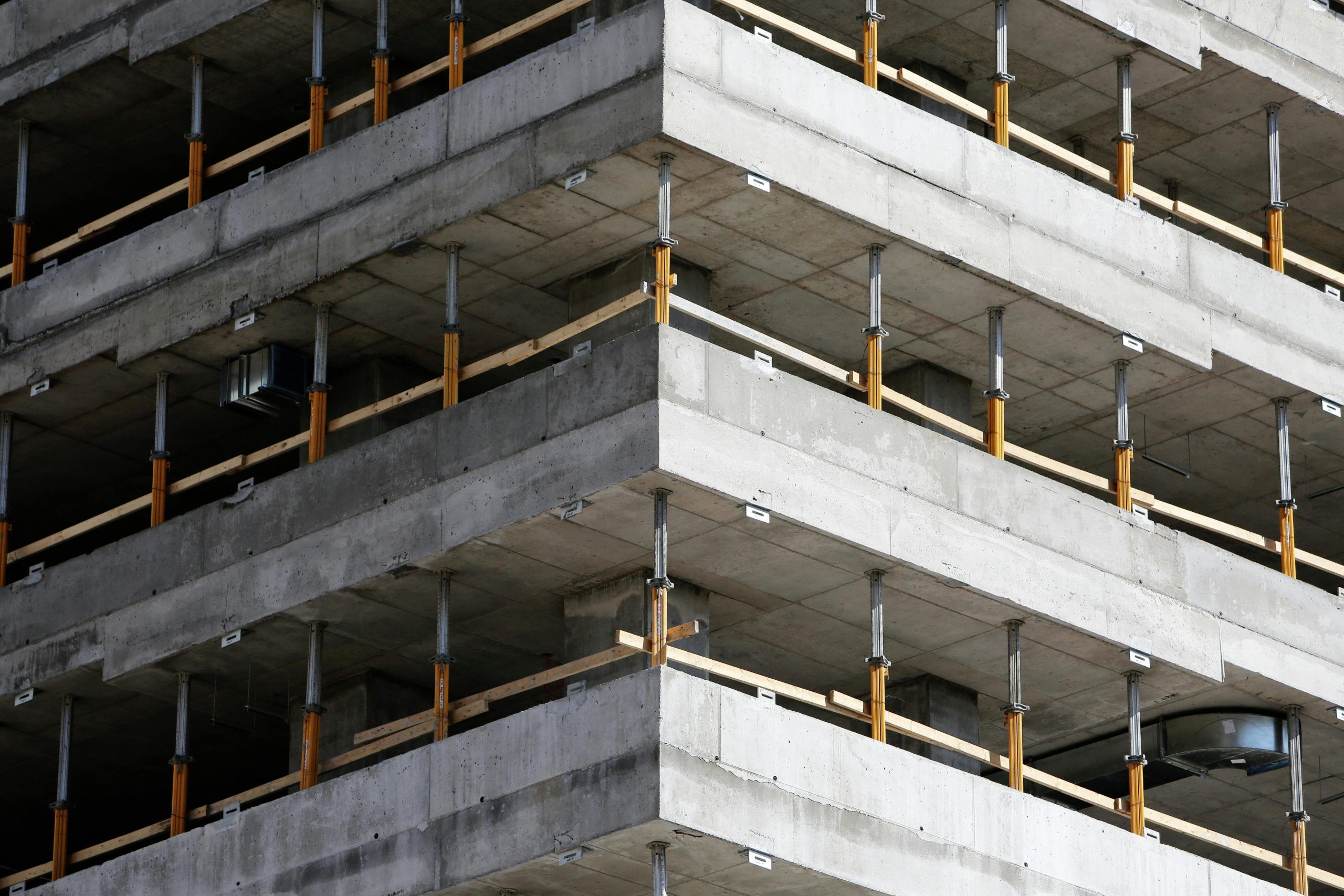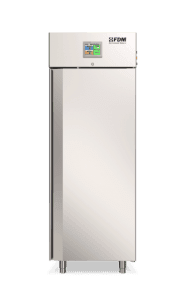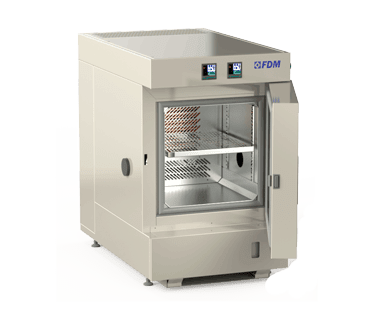
In the world of applied research, testing materials and products under controlled environmental conditions is a fundamental and necessary practice.
In the construction industry, one of the most frequently performed environmental tests is the carbonation test, a valuable tool for understanding how a material reacts to prolonged exposure to carbon dioxide.
But what exactly is carbonation?
And how can it be studied in the laboratory?
What is Carbonation?
Carbonation is a slow but continuous chemical process that occurs when CO₂ in the air penetrates a porous material—typically concrete—and reacts with calcium hydroxide to form calcium carbonate.
This change reduces the alkalinity of the material and can promote corrosion, especially in the presence of metal elements such as reinforced concrete reinforcement.
The phenomenon is natural in itself, but understanding it and measuring it in a controlled manner is crucial for assessing the safety and durability of buildings.
What is a Carbonation Test?
A carbonation test is a laboratory test used to quantify the speed and depth of the carbonation process in a material.
- Evaluate a material's durability over time;
- Compare different mixtures or surface treatments;
- Intervene to remediate a building.
To isolate the specific role of CO₂ and obtain reliable data, it is essential to perform the test in an environment with stable and measurable conditions. This is where climatic chambers come in.
Perform
Climate Stress
Discover the new series of Climate Chambers for controlled climate testing
How is a Carbonation Test Performed?
A climatic chamber is a laboratory instrument capable of accurately simulating a series of environmental conditions by altering the parameters of temperature, relative humidity, and the concentration of gases such as carbon dioxide.
For a carbonation test, the sample is placed inside the chamber and subjected to a controlled cycle that can last from a few days to several weeks.
, il campione viene posizionato all’interno della camera e sottoposto a un ciclo controllato che può durare da pochi giorni a diverse settimane.During the test, the following conditions are typically maintained:
- Temperatures between 20°C and 30°C, to accelerate chemical reactions;
- Constant relative humidity between 60% and 90%, ideal for the diffusion of CO₂ into the pores of the material;
- High CO₂ concentration, often around 3,000 or 4,000 ppm, much higher than the natural atmospheric concentration (about 400 ppm).
Furthermore, the most advanced climate chambers allow for automatic cycles to be programmed, parameters to be monitored in real time, and data to be recorded for post-test analysis.
To assess carbonation in building materials, for example, it is common to perform a "wet cut" of the sample and apply phenolphthalein, an indicator that allows for visual measurement of the depth of carbonation.
International Standards for Carbonation Testing
Like any scientific test, carbonation testing must comply with a series of international standards that ensure repeatability, validity, and comparability of results. Among the most commonly cited are:
- ISO 1920-12: which defines the method for assessing the depth of carbonation in concrete;
- UNI EN 12504: based partly on the previous standard, it details the conditions for testing concrete.
- RILEM CPC-18: guidelines for testing concrete and reinforced concrete.
In addition to the standards, it is essential that the climatic chambers used are validated according to the IQ (Installation Qualification), OQ (Operational Qualification), and PQ (Performance Qualification) procedures. These certifications ensure that the instrument functions correctly, that the set parameters are actually achieved, and that the test produces reliable data.
You cannot find the ideal chamber for your test?
Create your own environment, according to any test requirement
The FDM Carbonation Test Chamber
FDM - Environment Makers works in the field of climate simulation, designing technologically advanced solutions for laboratories, manufacturers, and research centers.
Our climate chambers are capable of performing all the carbonation tests discussed above, assisting operators throughout the process.
Furthermore, our technicians are always available to listen to the customer's specific needs and design a customized climate chamber that meets their requirements.
progettare insieme una camera climatica personalizzata che incontri i suoi bisogni.Download the White Paper below to learn more.
Would you like to receive a quote or do you have questions about the product?
Contact us to receive more information about this Product.





